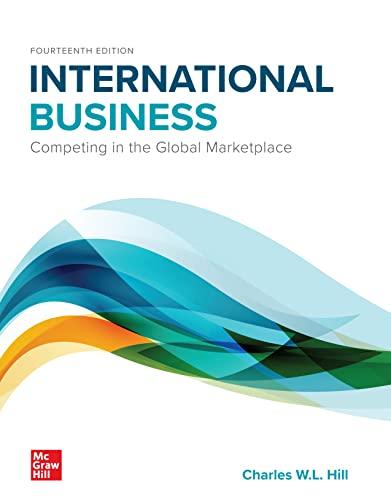In May 2011, Microsoft announced that it would be purchasing the Luxemburgbased internet communications company Skype in
Question:
In May 2011, Microsoft announced that it would be purchasing the Luxemburgbased internet communications company Skype in an allcash deal worth $8.5 billion.
The acquisition was the largest in Microsoft’s history.
Skype had been purchased by eBay in 2005 for $3.1 billion, but eBay took a $1.4 billion accounting charge in 2007 after the acquisition failed to realize hoped-for synergies.
In 2009, eBay sold a 70 percent stake in Skype to a group of investors led by the U.S. private equity firm Silver Lake Partners. The sale to Silver Lake valued Skype at $2.75 billion. Many observers were surprised that only 18 months later Microsoft was prepared to pay $8.5 billion.
Microsoft’s stated goal was to integrate Skype’s voice and video communications offerings into Microsoft’s suite of products, in order to bolster sales of those products and make Microsoft more relevant in the age of digital devices, mobile communications, and cloud computing.
To finance the acquisition, Microsoft used cash held overseas in foreign subsidiaries located in countries with very low corporate tax rates, such as Ireland, Singapore, and Bermuda. At the end of Microsoft’s 2010 financial year, the company stated in its annual report that it had $29.5 billion in “permanently reinvested earnings” outside of the United States. This figure represents the accumulated net proceeds from foreign sales. Under U.S. law at the time, Microsoft did not pay taxes on those earnings until they were repatriated to the U.S. In theory at least, such funds could be held indefinitely overseas. Microsoft also noted that the tax cost of repatriating those earnings to the United States would be $9.2 billion, representing an effective tax rate of 31 percent. The U.S. corporate tax rate was actually 35 percent at the time. Microsoft stated that the reduction to 31 percent would come from foreign tax credits, implying that the taxes the company paid on earnings retained overseas amounted to just 4 percent, nine times lower than the top U.S. rate. Microsoft stated that, by using foreign cash to acquire Skype, it was being tax efficient.
Microsoft wasn’t the only company involved in the acquisition that reaped tax benefits. Skype itself was incorporated in Luxemburg, a country with a corporate income tax rate of just 0.4 percent. At the time of the acquisition the U.S., private equity firm Silver Lake owned 39 percent of Skype.
Two of the three Silver Lake entities that owned shares in Skype were based in the Caribbean tax havens of the Cayman Islands and George Town, suggesting that Silver Lake would not be paying much in the way of U.S. capital gains tax on the profits made from its investments in Skype. In addition, 30 percent of Skype was owned by eBay. Despite being an American company, eBay’s Skype shareholding was held by eBay International AG, which is based in Switzerland where corporate tax rates are between 13 percent and 25 percent.
Despite paying $8.5 billion for Skype, Microsoft’s foreign cash horde continued to grow. As of March 31, 2013, the company held $66 billion of cash in foreign subsidiaries, representing 89 percent of all of the company’s cash holdings. In its regulatory filings, the company noted that this cash would be subject to material repatriation tax effects if returned to the United States.
Case Discussion Questions 1. What were the benefits to Microsoft’s shareholders of using cash held overseas to purchase Skype?
2. Microsoft’s effective tax rate on foreign earnings retained overseas appears was only 4 percent at the time of the case. How was this possible given that the corporate tax rate in most developed nations where Microsoft earns profits from foreign sales are considerably higher?
3. Why did Microsoft hold so much cash overseas, rather than returning it to the United States?
What do you think are the opportunity costs of holding tens of billions of dollars in cash in foreign locations? What potential benefits might accrue to Microsoft shareholders if it returned some of that cash to the United States?
4. Do you think it is ethical for companies like Microsoft to continue to hold cash overseas in order to avoid paying U.S. corporate income taxes? Is this practice always in the best interests of the company’s shareholders?
5. In January 2018, a change in U.S. tax law
(a) lowered the top tax rate on U.S. corporate income from 35 percent to 21 percent, and
(b) established a policy that corporate earnings should only be taxed where they are earned. How do you think this impacted Microsoft’s tax minimization strategies?
Step by Step Answer:

International Business Competing In The Global Marketplace
ISBN: 9781260387544
14th Edition
Authors: Charles Hill





